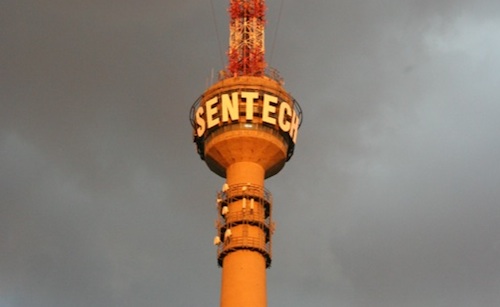
Sentech should concentrate on building SA’s digital terrestrial television broadcasting network and forget about trying to involve itself, again, in building a national broadband telecommunications network.
That’s the view of GSM Association (GSMA) government affairs special adviser Ross Bateson. The GSMA represents most mobile operators worldwide and is a powerful industry lobby group.
Bateson says Sentech needs to concentrate its limited operational and financial resources on rolling out digital terrestrial television. “They have plans to be a last-mile connector of mobile broadband but they don’t have the capacity or the means to invest in that kind of network at the moment,” he says.
Communications minister Roy Padayachie is keen for Sentech to use its access to scarce radio frequency spectrum to build a broadband network serving rural areas, including schools and clinics. The company recently outlined its plans to build a network during a hearing in parliament.
But, says Bateson, “I’d really like to see Sentech concentrating on the move to digital TV and let the mobile community roll out broadband networks.”
Bateson says Sentech has the wrong type of spectrum to build broadband connectivity in rural areas. It wants to use its 50MHz allocation of spectrum in the 2,6GHz band to build the network, but Bateson says this band is far better suited to delivering connectivity in dense urban areas.
“The idea of building rural networks at this spectrum is really silly,” he says. “But we’re still seeing political support for it.”
It would make more sense for operators to use the “digital dividend” — the spectrum around 800MHz that will be freed up when broadcasters switch from analogue to digital terrestrial television — to build wireless broadband networks in outlying areas.
Bateson says also that Sentech’s allocation of 50MHz in the 2,6GHz band is too generous. He believes at least some of this spectrum should be rescinded and given to operators who are better positioned financially and operationally to build networks. “But taking away spectrum from Sentech is politically very difficult.”
Sentech was first given access the spectrum more than five years ago, when it was mandated by former communications minister Ivy Matsepe-Casaburri to build a rival fixed-wireless network to stimulate competition to Telkom.
However, the company focused almost exclusively on rolling out connectivity in the wealthier suburbs in the country’s big cities and towns, largely ignoring the rural areas.
Still, the network failed after Sentech couldn’t keep pace with better-funded and more customer-focused cellphone operators rolling out third-generation mobile networks.
Bateson says Sentech would be best advised to walk away from its broadband plans. “I don’t know why they want [the spectrum]. They don’t know why they want it, they don’t have the money to invest in a mobile broadband network, and they are [already] very busy people.” — Duncan McLeod, TechCentral
- Subscribe to our free daily newsletter
- Follow us on Twitter or on Facebook




